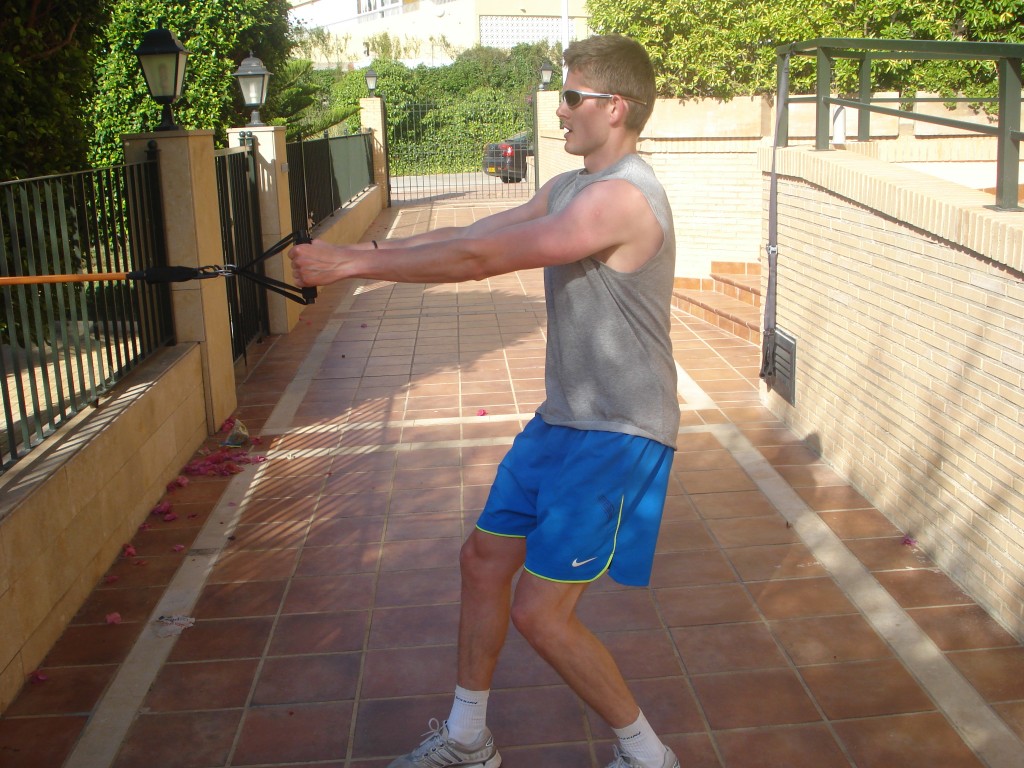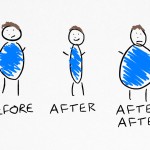I get this question a lot.
Will I burn more fat first thing in the morning? Will I be stronger later in the day?
Guess what? For most people, it doesn’t matter.
The health and fitness industry loves to sell us on the little things. The one secret you need to know to burn fat or get strong or live long. The special food you need to be eating. The timing of your meals. This super supplement. That fancy gadget or exercise or wonder workout.
The efforts of industry marketers have us focussing on minutiae. They have us micro-managing our diet and our workout, and lead us to believe there is a missing link. In truth, rather than the finer details, the vast majority of us would do better focusing on the big rocks. The big rocks are the fundamentals. They are the priorities, the first things you should place in your health & fitness bucket.
1. Do you get enough quality sleep?
2. Is your diet predominantly based on minimally processed, ‘real’ foods?
3. Are you in the habit of being physically active?
If not, you probably don’t need to be worrying about supplements or special workouts. If you can answer ‘yes’ to each of the above, I have some more questions…
4. Do you have a specific health & fitness goal?
5. Do you eat an appropriate amount of calories to support that goal?
6. Do you exercise in a way that supports your goal?
And
7. Is it enjoyable? (i.e. will you be able to maintain it?)
For most of us, doing the fundamentals, consistently, over time is the issue. It’s not about a missing link. If you cannot lose weight (or gain weight), it’s most likely that you’re just not eating an appropriate amount of calories. (As it turns out we have a tendency to underreport our food intake – even when we’re trying to be genuine).
Whether or not you eat three or six meals a day, eat organic foods, consume artificial sweeteners, practice intermittent fasting, food timing or anything else really is secondary to the questions above. They are pebbles to our rocks. Answer those seven questions first. Then once you’ve answered them, ask yourself “how do I know?”
How do you know you get enough sleep, eat enough calories, or that your exercise is effective? Again, it’s very easy to fool ourselves but the reality is that most of the time it’s the big rocks that let us down, not that we have a sluggish metabolism or aren’t eating ‘paleo’ enough.
So back to the title of the post, the best time to work out is the time that you can workout. The time that you will workout. The time that fits into your lifestyle. And for what it’s worth, if exercising is something you find difficult, I’d suggest doing it early in your day. Our willpower often becomes depleted as the day goes on making it harder to follow through with things that take conscious effort. It’s best to do the difficult things first!
BIG IDEA: The health and fitness industry fools us into thinking there’s a missing link, a trick or secret to getting results.
TAKEAWAY: Master the fundamentals before considering the finer details.
ACTION STEP: Answer the seven questions. Then ask, “how do I know?”
- Do you get enough quality sleep?
- Is your diet predominantly based on minimally processed, ‘real’ foods?
- Are you in the habit of being physically active?
- Do you have a specific health & fitness goal?
- Do you eat an appropriate amount of calories to support that goal?
- Do you exercise in a way that supports your goal?
- Is it enjoyable? (i.e. will I be able to maintain it)
Always Keep Reaching!
References
Roy F. Baumeister, Mark Muraven, and Dianne M. Tice (2000). Ego Depletion: A Resource Model of Volition, Self-Regulation, and Controlled Processing. Social Cognition: Vol. 18, Social Ignition: The Interplay of Motivation and Social Cognition, pp. 130-150.





